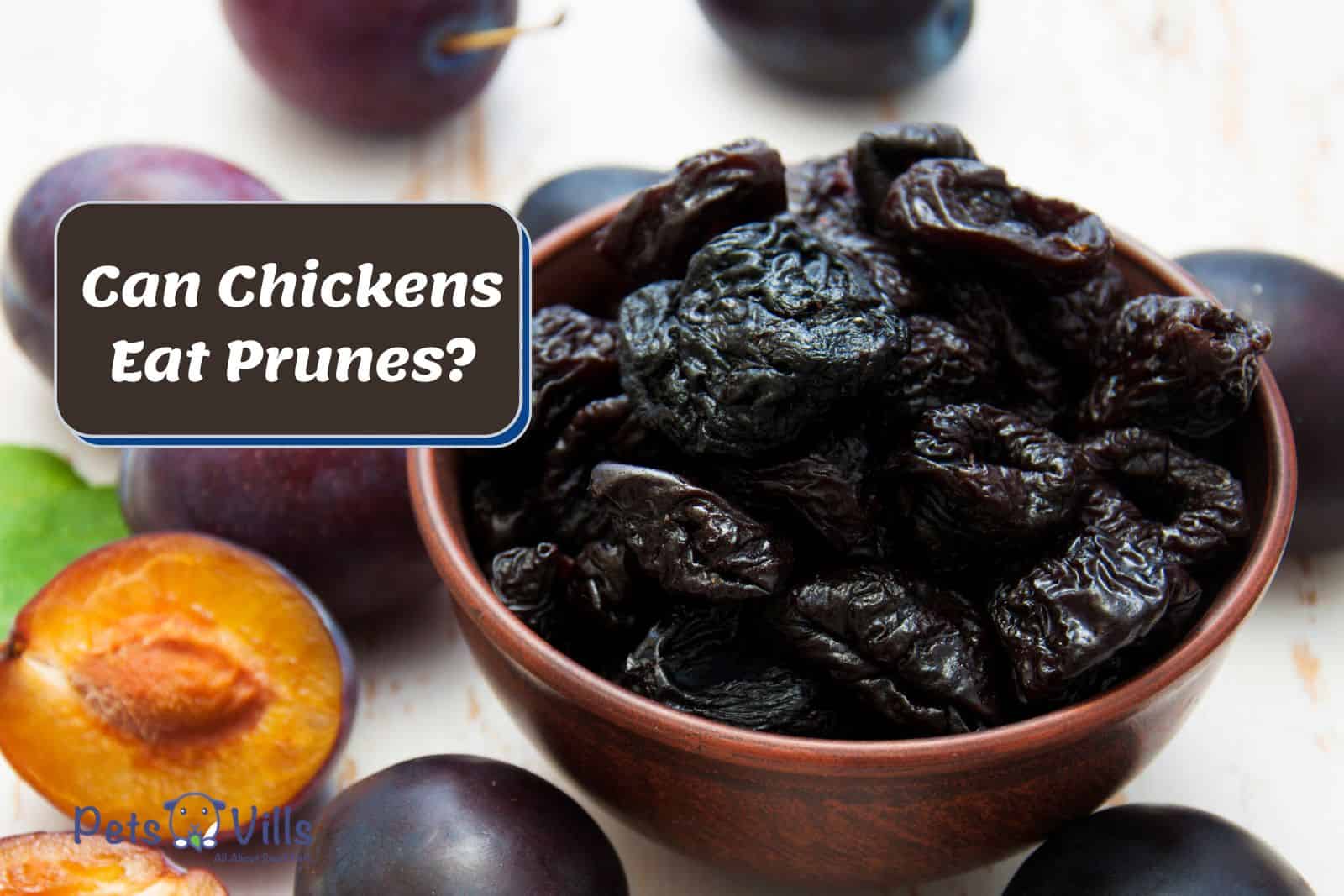Wondering, “Can chickens eat prunes?” The answer might surprise you:
Yes, they can!
Chickens can eat prunes and get nutritional benefits from them, but keep in mind that in large doses, they can be toxic — so feed this treat in moderation…
Now, if you’re keen to know more about the health benefits of prunes, don’t forget to KEEP READING…
Table of Contents
Key Takeaways:
- Prunes are high in fiber, potassium, vitamins, and minerals for chickens.
- Feed prunes to your adult chickens in moderate amounts as healthy snacks.
- They can eat prunes whole or in tiny, bite-size pieces.
Is It Healthy For Chickens To Eat Prunes?
Before I reveal the secret, I’ll let you decide it yourself. But before I’ll do so, let me tell you something remarkable:
Diet expert Brianna Elliott, RD has the following to reveal about this vibrant fruit (1):
“It plays a role in preventing constipation by adding bulk to your stool and may speed up the rate that waste moves through your digestive tract.”
Prunes are safe for humans to eat, but if you have backyard chickens and want to feed them some prunes, you have asked yourself whether your chickens can benefit…
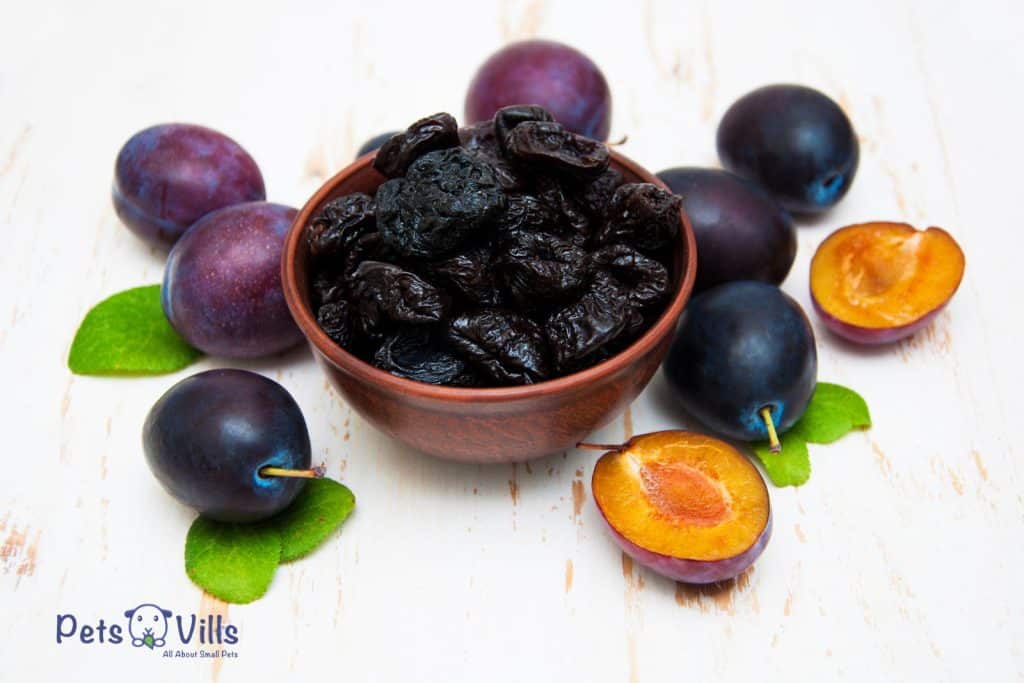
Here’s the kicker: YES! It is healthy for chickens to eat prunes due to this fruit’s beneficial nutrients.
In fact, fiber is abundant in prunes, along with other vitamins and minerals such as calcium, magnesium, and iron. (2)
Amazingly, some of the health benefits of prunes when fed to chickens as part of a more significant balanced diet are below:
Helps Digestion
Prunes are high in fiber, which helps promote a healthy digestive system and prevents digestive issues.
Feeding prunes to chickens prevent constipation and moves their food along the intestinal tract smoothly.
You can also give the chickens prune juice, but it doesn’t contain the same amount of beneficial fiber as the whole fruit.
However, the juice retains some fiber and other vitamins and minerals.
High in Potassium
Prunes are a good source of potassium, an electrolyte that helps with various vital bodily functions.
This mineral promotes healthy blood pressure, digestion, and heart health.
High in Vitamins
Prunes are packed with vitamins that are beneficial to chickens. This includes vitamins K, A, B-6, riboflavin, and niacin.
All these vitamins work together to help protect chickens from illness and promote healthy bodily functions.
Are Prunes Toxic to Chickens?
To fully answer your question, “can chickens eat prunes” I’ll address toxicity…
Prunes are only toxic to chickens if they eat too many of them, which you can control and moderate as chicken owners.
Prunes have seeds (also called stones or pits) that contain a compound called amygdalin. When ingested by the chicken, it will break down into hydrogen cyanide.
Other fruits that contain a stone pit with this toxin include apricots, cherries, and peaches. These fruits are also known as stone fruits.
If you have already fed your chickens prunes, there’s nothing to worry about. The toxins will affect your chickens only if the prunes are eaten in large quantities.
To be on the safe side, like any other fruits, prunes should be given to them as treats. This means a few times per month is enough for them.
For a deeper understanding of poultry diet, don’t miss the in-depth articles “Can Chickens Have Spaghetti Squash?” and “Do Chickens Eat Pomegranate Seeds?”.
How To Feed Prunes To Chickens
There are a couple of different methods to feed prunes to chickens. Check them out:
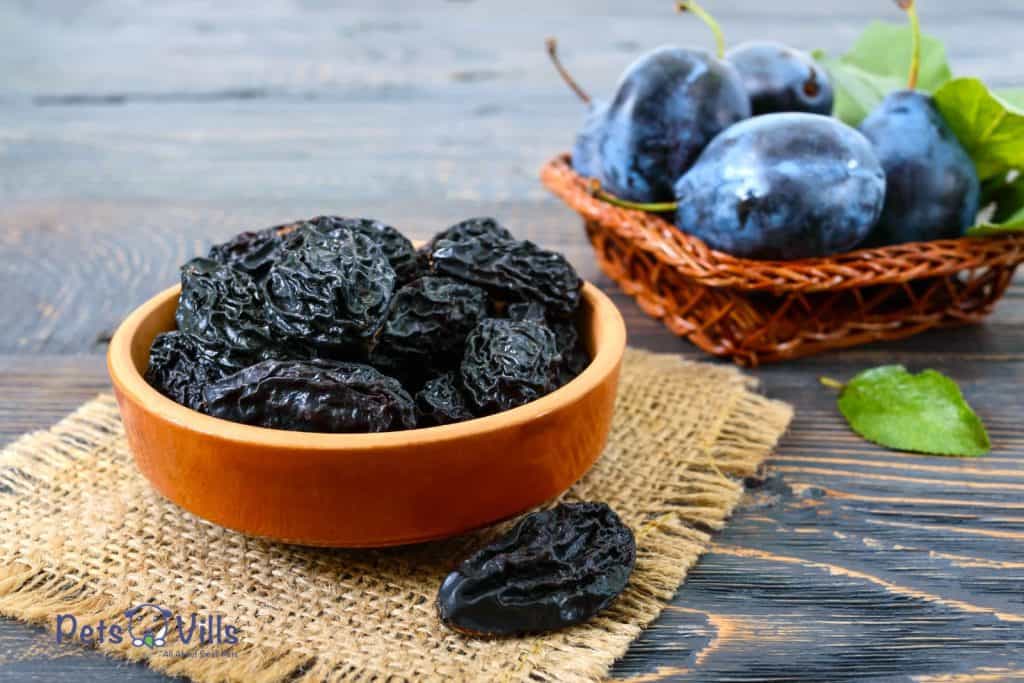
Method 1: Mixing It With Their Feed
This is an excellent method to add essential nutrients from prunes to their feed.
Cut the prunes into small pieces about the size of the feed pieces, and mix them into their feed.
Method 2: Feeding Them Whole Prunes
This is the easiest method to feed the chickens. Toss the prunes to the chickens, and they will start pecking at them and eating them.
Even though the chickens will avoid the seeds of the prunes, it’s a good idea to remove them first.
There is always the chance that the seeds could get broken apart, and the chickens could mistakenly swallow some.
How Much And How Often To Feed Prunes To Chickens
When feeding chickens healthy snacks, it’s recommended to provide prunes in moderation, and too much can be harmful and even fatal because of the toxic seeds.
Also, prunes alone don’t have the nutrition the chicken requires daily. Prunes and other healthy treats should be fed as 10% of their entire diet. (3)
Their daily diet should come from high-quality commercial feeds, such as layer feed if your chickens are egg-laying hens.
So, it’s best to give the prunes to the chickens as occasional treats, and a few times per month is enough for them.
Instead of feeding them prunes as their only treat, you should give them other fruits and veggies. That way, your chickens will get the nutrition the prunes don’t have.
For a visual review — or if you’re simply tired of reading — watch the following video to learn more about a chicken’s diet and what to feed chickens as nutritious treats:
Other Fruits That Chickens Can Eat
The following are examples of other tasty treats you can provide your chickens:
Figs
Figs are edible and packed with nutrition. They make an occasional excellent treat for chickens.
Oranges
Oranges are rich in vitamin C and other beneficial nutrients and make a nutritious treat.
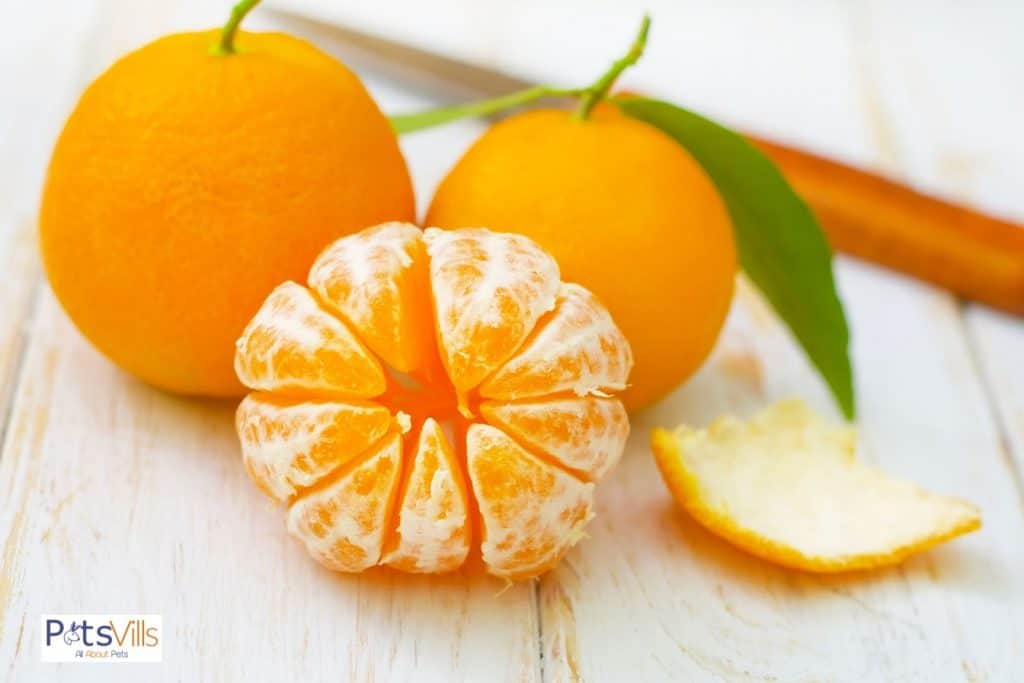
The problem with oranges or other citrus fruits: chickens prefer not to eat them, and providing too much vitamin C can interfere with calcium absorption and bone health.
If your chickens enjoy oranges, they’ll get a lot of nutrition from the fruit as long as they don’t eat them too often.
Pumpkin
Pumpkin is a treat that chickens get incredibly excited about. They can eat the flesh of pumpkins as well as pumpkin seeds.
Since the entire pumpkin is safe for chickens to eat, you can cut off the top and place it next to them. The chickens will peck at the pumpkin instantly!
Grapes
Grapes are high in vitamins and minerals. However, this fruit is a bit high in sugar, so avoid giving too many grapes to your chickens.
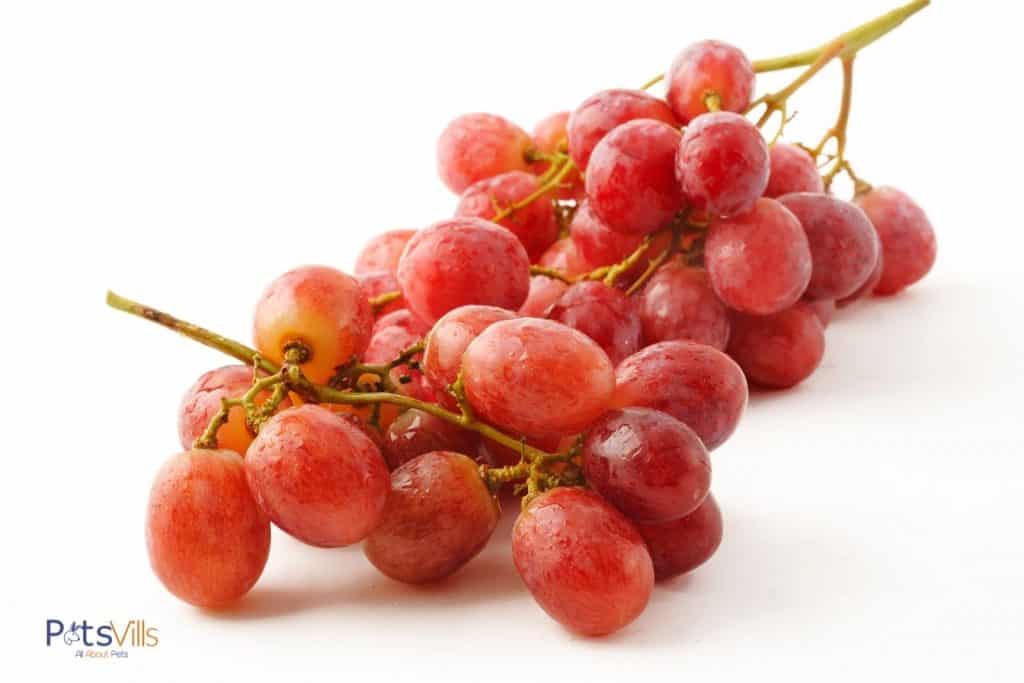
Frequently Asked Questions
1. Can my chickens drink prune juice?
Yes, chickens can drink prune juice, which has health benefits, just like the whole fruit. However, like other treats, prune juice should be given to them in moderation.
2. Can my chickens eat raisins?
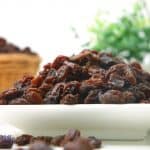
Chickens can safely eat raisins; however, they don’t provide raisins too often because they aren’t the most nutritious snack.
Conclusion
So, can chickens eat prunes?
If you have wondered about this, the answer is yes. This juicy fruit called prunes benefits the health of chickens, especially their digestive health, and can prevent health issues.
You can feed your chickens whole or chopped prunes as a healthy option for a snack as long as you don’t provide prunes too often.
Prunes pack more than merely a healthy treat: a delicious alternative food, and should be the fruit in the hall of fame for the favorite snacks for chickens.
Please share in the comments your experience with feeding your chickens prunes!
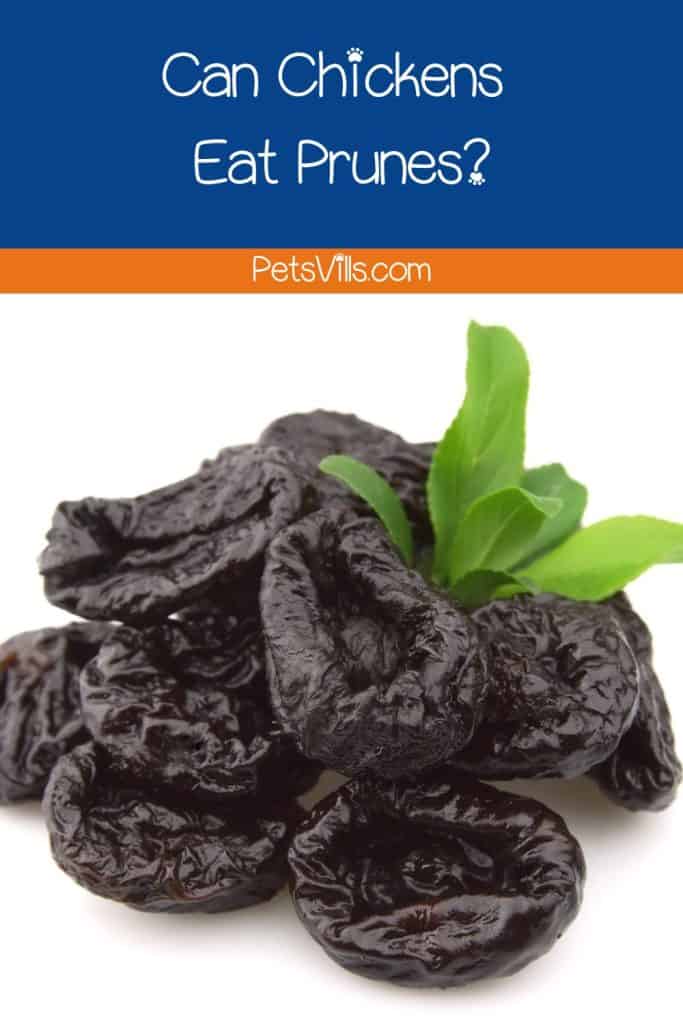
Resources:
1. Elliott B. 7 Health Benefits of Plums and Prunes [Internet]. Healthline. 2017. Available from: https://www.healthline.com/nutrition/benefits-of-plums-prunes#TOC_TITLE_HDR_3
2. Stacewicz-Sapuntzakis M. Dried Plums and Their Products: Composition and Health Effects–An Updated Review. Critical Reviews in Food Science and Nutrition. 2013;53:1277–302.
3. Biggs P. What Can Chickens Eat Chicken Treats to Feed and Avoid [Internet]. Purina Animal Nutrition. Available from: https://www.purinamills.com/chicken-feed/education/detail/what-to-feed-chickens-chicken-treats-to-feed-and-avoid
Grigorina grew up surrounded by animals – dogs, cats, cows, goats, sheep, and horses and that has shaped her into what I am today – a crazy cat lady who always has a place for one more cat (or a dog). She has two female cats – Kitty and Roni, and two tomcats – Blacky and Shaggy, but she also feeds her neighbors’ cats when they come for a visit. I just can’t say no to them. Follow her on FACEBOOK AND INSTAGRAM
Read her latest articles HERE
Learn more about her

